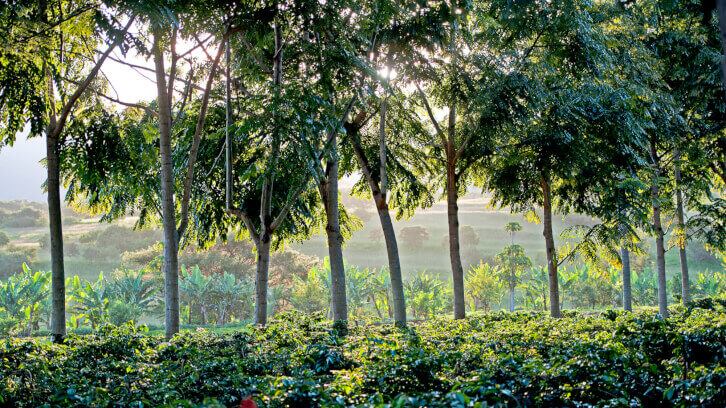“The Bobo’s and Acorn partnership was a natural first step for carbon reduction. The Tanzanian cooperative projects was precisely a fit for Bobo’s social sustainability objectives to make a meaningful difference in the world,” Ethridge said.
While the agroforestry initiative with Acorn is new for Bobo’s, the company has focused several of its sustainability initiatives on other aspect of the business, including renewable energy, packaging and upcycled waste.
In 2022, Bobo’s committed to renewable energy when it opened its 100% wind-powered bakery facility in Loveland, Co. Additionally, the company’s packaging uses paperboard and cartons certified by the Sustainable Forestry Initiative and works with How2Recycle’s standardized labeling system to print easy-to-understand recycling instruction. Bobo’s partnered with ReConserve to convert its bakery waste to animal feed for local farmers.
How do carbon removal credits work?
Acorn works with thousands of local farmers around the world to help implement agroforestry, the practice of planting diverse species, including other cash crops like fruit and nut trees, on the field to strengthen biodiversity and soil health to ultimately combat climate change; while the organization’s work with local farmers also helps them improve food security and diversify their income.
Through remote measuring techniques, Acorn measures the amount of carbon that is sequestered from the maturation and growth of these diverse plants. One ton of captured carbon in nature equals one carbon removal unit (CRU), which are fully traceable and certified by Acorn. These credits are sold to companies, including Bobo’s, to offset their carbon emissions, while farmers receive 80% of the sales revenue and boost sustainable farming in the process. Of the remaining 20%, half goes to Acorn and half to its farmer-coordinating partners.
Ethridge added that the only cost from Bobo’s to Acorn is the purchase of the carbon offset credits, highlighting that “it was especially attractive to Bobo’s to have robust accountability and validation that Acorn provided to avoid greenwashing.”
In conjunction with Acorn’s program, Bobo’s measures its carbon sequestering initiatives as well using an AI-based carbon measuring software called Carbonhound, Ethridge explained.
“By using Carbonhound … Bobo’s is able to measure its present carbon footprint, apply Acon offsets and focus on other carbon reduction techniques,” she said.
Bobo’s partnership with Acorn is “one of the tools in the toolbox” and the opportunity to scale up carbon-reduction efforts through the partnership is possible as the company continues to explore its GHG reduction strategy, Ethridge said.
“Preference is always for technological solutions, but as some of this new and emerging technology is not yet available or economically feasible, legitimate carbon offset credits are scalable to future needs,” she explained.

